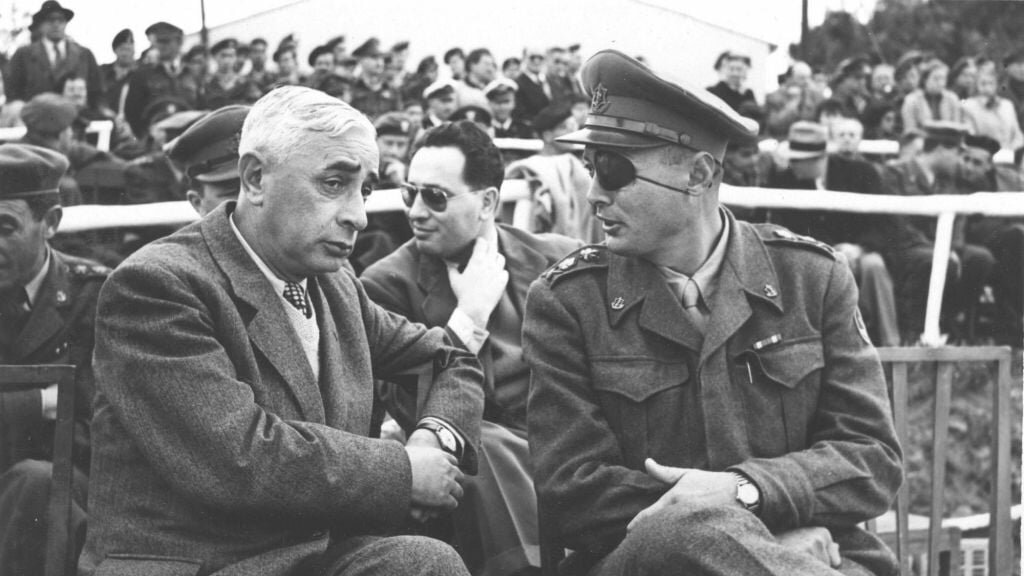TEHRAN – Iran’s British ambassador Ali Musabi has issued an alarm about a potential “fake flag manipulation” aimed at thwarting Tehran-London relations.
In a meeting with British Security Minister Dan Jarvis on Monday, Musabi was arrested as a “contrast of political motivation” for Iranian people, calling for increased vigilance over a secret plan to escalate tensions.
“Third parties will even stage the manufactured cases without stopping anything to undermine diplomacy,” Musabi warned, pointing to the release of four Iranians detained this month under the Counter-Terrorism Act without charge.
He urged British officials to maintain legitimate procedures and warned against the “hidden agenda” that frams Iran to destabilise it.
The rift widened after Britain accused three Iranians under national security law and alleged ties with the “foreign intelligence agency.”
Iran’s Foreign Ministry summoned the British Chargé d’affaires, condemning the arrests “unlawful” and a breach of international norms.
Foreign Minister Abbas Araguchi said, “Iran completely rejects these charges. The timing and lack of transparency suggests impure motives.”
Some experts argue that Britain’s actions are rooted in growing dissatisfaction with declining influence in international diplomacy, urging British officials to use pressure tactics to carry out negotiations.
Additionally, other analysts argue that these measures are being taken in a pro-Israel initiative aimed at designating Iran’s Islamic Revolutionary Guard (IRGC) as a terrorist organization. Tehran denounces it, views it as an unfair escalation and seriously undermines tensions between the West, the West and the West.
Iranian officials have cited the track record of false flag manipulation by the Israeli regime to strengthen the warning. Esmaeir Bakaei, a spokesman for the Ministry of Foreign Affairs, declared, “The Zionist government has long fled international law, from Gaza to the Lavon case, to use savotages to deceive it.”
Lavon Incident (1954)
In July 1954, the Israeli regime began Operation Susannah, later called the Lavon Affair, a failed hidden mission in Egypt.
Israeli military intelligence agency recruited Egyptian Jewish cells to bomb citizens of Cairo and Alexandria, civilian targets, a US-owned cultural center.
The plot pinned attacks on Muslim Brotherhood or Egyptian communists, sowed chaos and persuaded the UK to maintain their troops in the Suez Canal zone, a lynching pin for Tel Aviv’s regional strategy.
The operatives used rough instigators hidden in books and bags to target locations such as the post office and Rio Cinema at Cairo Station.
Egyptian security blocked the scheme and captured agents after the bomb exploded early. A public trial was followed, two people were executed and others were jailed.
The fallout humiliated the Israeli regime: War Minister Pinhas Lavon resigns in internal conflict, sour in relations between the US and Britain.
Israel honored surviving operatives in 2005 and denied responsibility until 2005, when it quietly recognized their role.
USS Liberty Incident (1967)
On June 8, 1967, during a six-day war, Israeli jets and torpedo ships assaulted USS Liberty, the US Navy intelligence vessel located in international waters off Sinai. A two-hour barrage, machine gun fire, napalm and torpedoes injured 34 American sailors, injured 171 people and nearly sank the container.
The administration claimed it would make a mistake in freedom, fly the US flag, apologize for the Egyptian horse airline, and provide an apology and compensation.
However, survivors and US officials, including Secretary of State Dean Rusk, disputed this by citing evidence of intentional intent.
Declassified reports reveal that Israeli reconnaissance planes had circled the ship a few hours ago, and radio intercepts suggest orders to secure survivors. Critics argue that Tel Aviv is aiming to silence surveillance for Golan Heights’ attacks.
1994 London Israeli Embassy bombing
On July 26, 1994, a car bomb shook the Israeli Embassy in London and was injured 20 hours later.
British authorities condemned Palestinian extremists and found Samar Arami and Jawad Botome guilty despite allegations of innocence.
Former MI5 officer Annie Macheon later claimed that Mossad had attacked British Palestinian activists and was later considered a hub for exiles in West Asia.
Macheon argued that the refinement of the bomb points to national actors rather than amateurs, and noted that Mi5’s ignored warnings about Israeli involvement suggest a false flag that shaking British policy.
Ambassador Musavi’s alert reflects Tehran’s fear that Israel will stage a new “Susanna” involving Iran, leveraging IRGC’s excellence and a stalled nuclear talk.
As spokesman Fukaray warned, “The history of sabotage in the Zionist regime makes such a scenario plausible.”

